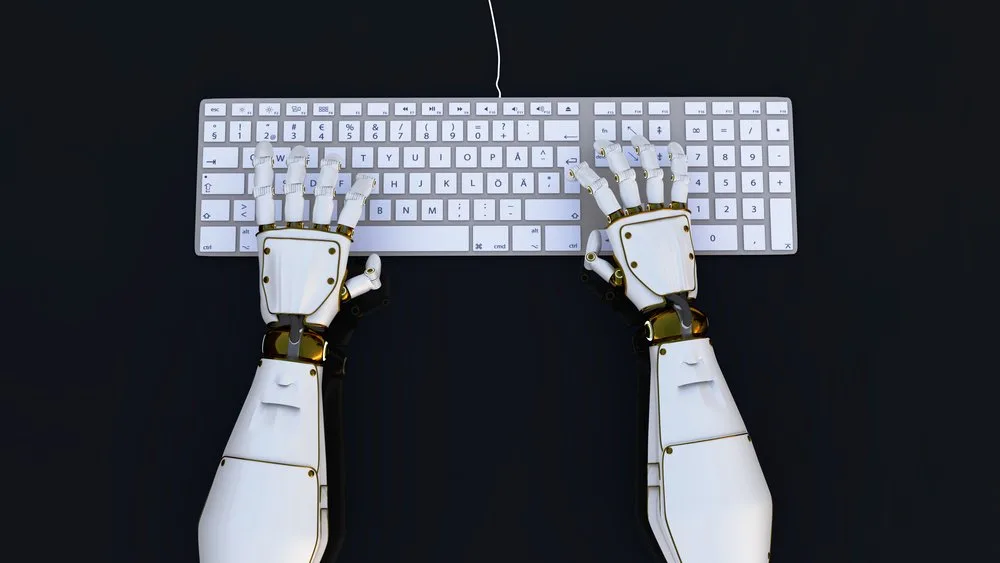Ever since artificial intelligence (AI) came on the scene, there have been concerns about how it will take people’s jobs. But is it really something we need to be worried about?
The question is: will AI be part of the problem or part of the solution?
Without a doubt, AI is changing the current landscape of health and wellness. On top of that, it is also one of the hottest topics in medical technology. Modern innovation has helped its development tremendously. It covers everything from deep learning to Big Data, virtual reality, and cognitive technologies. Today, wearable-generated data even becomes meaningful clinical information through this technology. In short, AI is showing more and more promise for improved healthcare. And personalized medicine is where AI is flexing its muscles the most.
Think of it this way. Every superhero needs a sidekick, right? I mean, who would Iron Man be without Jarvis? Likewise, every physician will only perform better with AI support.
One recent ground-breaking clinical study showed how AI can now successfully treat and halt the progression of metastatic cancer. This study also represents a big leap in personalized medicine. Researchers at the National University of Singapore (NUS) used an AI platform known as CURATE.AI to determine the patient’s optimum treatment dosage. The results of the study were published in Advanced Therapeutics in August last year.
How did it work?
The patient treated suffered from metastatic castration-resistant prostate cancer (also known as MCTPC). The team collaborated with the University of California Los Angeles and Zenith Epigenetics. They made use of the new platform to set up a unique profile for the patient, using the patient’s clinical data.
According to NUS News, this data generally includes elements such as drug doses and corresponding changes to tumor sizes of levels of cancer biomarkers in the blood. The researchers then used this data to regulate the patient’s response to the treatment. Hereafter, they can develop the patient’s profile on CURATE.AI. This profile helps determine the optimum drug doses that the patient’s condition required at any given period of the treatment.
Why is this important?
The trial involved combination therapy dosing. In this process, physicians use multiple drugs to counter the biological advancements supporting cancer growth. It is done to have drug synergy. Therefore, the researchers wanted a method where the doses would be more suitable for the patient than is usually the case.
During the trial, the physicians gave the patient a combination of ZEN-3694 and enzalutamide. Both of these drugs can usually treat prostate cancer.
Generally, in combination therapy, the doses are fixed and at high levels. This situation is often not suitable for patients. Prof Dean Ho is the director of the Singapore Institute for Neurotechnology (SINAPSE) at NUS and the leader of the study. He explained that chemotherapy does not always have the same effect on everyone. Even a single patient’s response to treatment can vary throughout the treatment.
Personalized Medicine
“In fact, many patients do not respond at all to the drug combination. [This is] because the dosages, which can profoundly impact efficacy, are not suitable for them,” he said. “Therefore, while fixed-dose combination therapy represents a standard of care, it may also serve as a barrier to realizing truly optimal and personalized medicine.”
By using a personalized patient map or profile, they were able to bypass this barrier and have accurate information regarding the dosage in combination therapy.
Why was it successful?
Before the CURATE.AI profile analysis, the patient received a ZEN-3694 dose that was 50% higher than was required. After the analysis, the profile was able to identify the correct dosage and guide the researchers accurately. This resulted in the lowest PSA (prostate-specific antigen) levels for the patient during the clinical study.
Moreover, because the platform’s profile functioned dynamically, changing with the patient’s progression, the researchers were able to adjust the dosage accordingly. This stopped the progression of the disease. On top of that, CT imaging of the patient’s lesions demonstrated that this was as a result of the CURATE.AI’s ability to guide the combination-drug therapy.
NUS News reports that patient care is ongoing, while multiple clinical trials using CURATE.AI-guided combination therapy for oncology and additional applications are underway.
What does this mean for healthcare?
With plans to branch beyond oncology, the CURATE.AI team aims to make use of the platform in various areas of medicine. This includes the prevention of transplant rejection, cardiovascular medicine, management of diabetes, and infectious diseases.
This study shows that AI can optimize healthcare in a manner that was not possible in the past. But not too long from now, its abilities could extend to many more sectors of healthcare. Delivering his keynote address at the recent Healthcare Innovation Summit Africa 2018 (HISA), Andrew Raynes, director of IM&T and CIO at Royal Papworth Hospital, commented on the importance of digital transformation. This goes for every organization aiming to take advantage of the many benefits of new technology to provide optimum patient care.
“Technology plays a vital role in ensuring that health professionals have quick access to the information they need to make decisions, helping them to provide the right care to patients at the right time and in the right place.”
The future possibilities of AI are endless
In one of the panels taking place at the summit, Paul Sanders, data analytics product manager at Mediswitch, explained that AI can help transition medicine from fighting illness reactively to treating it proactively, predictively and preventively. “I think that is going to be one of the biggest game-changers of the future. AI can start to help doctors not just to treat what is in front of them, but also enable them to predict future events before they happen.”
Will AI replace medical professionals?
While robotics and technology are unlikely to ever completely replace medical professionals (a study recently conducted by Oxford University showed that physicians and surgeons have only a 4% risk of being automated), the presence of AI in medicine is invaluable. When used correctly, AI can result in fewer mistakes and more accurate diagnoses for patients with rare conditions. Moreover, it can instantly provide physicians with millions of pages of data, medical articles, and details on the patient’s biology that the human mind simply cannot recall at the same speed or level of accuracy.






![women [longevity live]](https://longevitylive.com/wp-content/uploads/2020/01/photo-of-women-walking-down-the-street-1116984-100x100.jpg)










